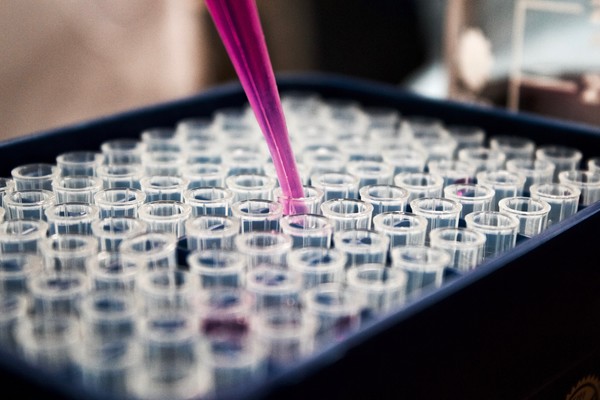On Yonsei Science Park, the campus’ second expansion stage
SINCE ITS opening in 2010, Yonsei’s International Campus in Songdo has played a crucial role in preparing freshmen for university life and attracting foreign students. Now, the campus is undergoing yet another expansion phase, designed to bolster the university’s research output and industry-academic cooperation. Through this process, Yonsei seeks to achieve a seamless integration of education with research, business, and medical institutions.

A retrospective on Yonsei’s International Campus
Since its establishment in 2011, Yonsei’s International Campus has been undergoing a continuous expansion phase. The first of two planned phases focused on education and attracting foreign students. A Residential College (RC) system was adopted, wherein students live on campus for their freshman year, mingling with peers and faculty through various educational activities. Students are divided into Houses and are assigned three counselors: one specializing in general academics, another in the student’s specific major, and finally a House Residential Master (RM). Guidance on school life is provided through mandatory RC101 courses while RC self-directed activities offer students the chance to participate in a diverse array of exercises relating to the arts and culture, health and community, and science.
Additionally, the International Campus was established with strong ties to the Underwood International College (UIC) and the School of Integrated Technology. Courses for certain UIC majors in the Humanities, Arts, and Social Sciences (HASS) and Integrated Science and Engineering (ISED) divisions are held exclusively in Songdo. Meanwhile, the School of Integrated Technology is headquartered at the International Campus’ Veritas Hall C. Moreover, Yonsei’s partnerships with the United Nations Office for Sustainable Development (UNOSD) and Design Factory Korea (DFK) allow both organizations to operate their Korea offices out of the International Campus[1]. The UNOSD is responsible for sustainable development education, while the DFK provides students with various resources that help them prototype, produce, and market their ideas[2].
Overview of the planned expansion
Following in the footsteps of the successful 1st expansion phase, Yonsei is ramping up the 2nd step: Yonsei Science Park. This new phase will focus on bolstering scientific research and industry-academic cooperation in education. Specifically, it seeks to foster closer integration between Yonsei University and research labs, companies, and the upcoming Songdo Severance Hospital in order to advance research, monetize it, and reinvest the profits into education and further research. From the university’s side, the Residential College system, UIC’s ISED, and the College of Pharmacy will serve as the Science Park’s education hubs[3]. One cornerstone of the Park’s research component will be the Institute for Bioprocessing Research and Training (K-NIBRT), which aims to advance domestic biomedical research and increase Korean bioengineering’s foothold in foreign markets. Another is the Songdo Severance Hospital, which will utilize artificial intelligence (AI) and big data to provide faster and more personalized medical care. The hospital will also serve as a hub for stem cell research and genomic testing—the process of analyzing genes in DNA to predict as well as treat future illnesses. Moreover, a quantum computing center will be established in conjunction with International Business Machines Corporation (IBM) to focus on researching quantum computing for use in information technology. During an interview with The Yonsei Annals, Yonsei Science Park Project Group Director Kim Kab-sung (Prof., Dept. of Urban Planning and Engineering), said this will open up a variety of research opportunities impossible with conventional supercomputers.
In addition to the multitude of research facilities, various partnerships are underway with the objective of commercializing research and fostering industry-academic cooperation. The Makerspace i7 lab, which supports startups seeking to monetize and enter global markets, is a prime example. This is supplemented by Yonsei’s participation in a Ministry of Education initiative to establish industry-academic cooperation complexes in universities; currently, 15 companies are conducting joint research at the International Campus[5]. K-Bio Lab Hub is an enterprise support program geared towards bioengineering startups, with the objective of providing experiment, research, and prototyping infrastructure necessary for commercialization. Existing elements of the International Campus, such as the DFK, the UNOSD office, and the Institute of Pharmaceutical Sciences, will also be integrated into the Science Park ecosystem to provide their expertise in nurturing startups and facilitating research. Another notable joint project is Yonsei’s partnership with Ireland’s NIBRT, which has successfully trained 881 Korean bioengineering students to date[4]. Plans for a plethora of supplemental facilities, such as dormitories for researchers, a data science center, and a technological innovation center, are being finalized as well[5].
Current state of affairs and future plans
Major components of Yonsei Science Park have already commenced construction. The Songdo Severance Hospital began substructure work in December, 2022, and is scheduled to be completed in 2026. Kim states that the initial construction phase for the hospital is already complete, with the next stage set to start next year. The foundations for K-NIBRT were laid in June of this year, with the facility on track for completion by late 2024. Once operational, it is projected to be capable of cultivating up to 2,000 students yearly. Meanwhile, Yonsei is seeking to expand the number of research partner companies working at the International Campus, with a goal of attracting a total of 35 firms by 2025[5]. The quantum computing center’s 127-bit quantum computer will be installed in 2024, after which Korea will become the fifth country in the world to possess such a device[6]. Work on the K-Bio Lab Hub is set to last from 2024 up until 2025, with a projected inauguration in 2026[7]. Kim further notes Yonsei’s recent purchase of land in Songdo’s 11th construction zone, which will be developed into a “cluster” of bioengineering-related organizations. With Yonsei Science Park nurturing the required human capital and research base, its objective is to promote local companies and advance Korea’s overall industrial capacity.
[1] Yonsei University
[2] Design Factory Korea
[3] Yonsei Science Park Project Group
[4] Joongboo Ilbo
[5] The Kyeongin Ilbo
[6] Incheon Ilbo
[7] Dailypharm

